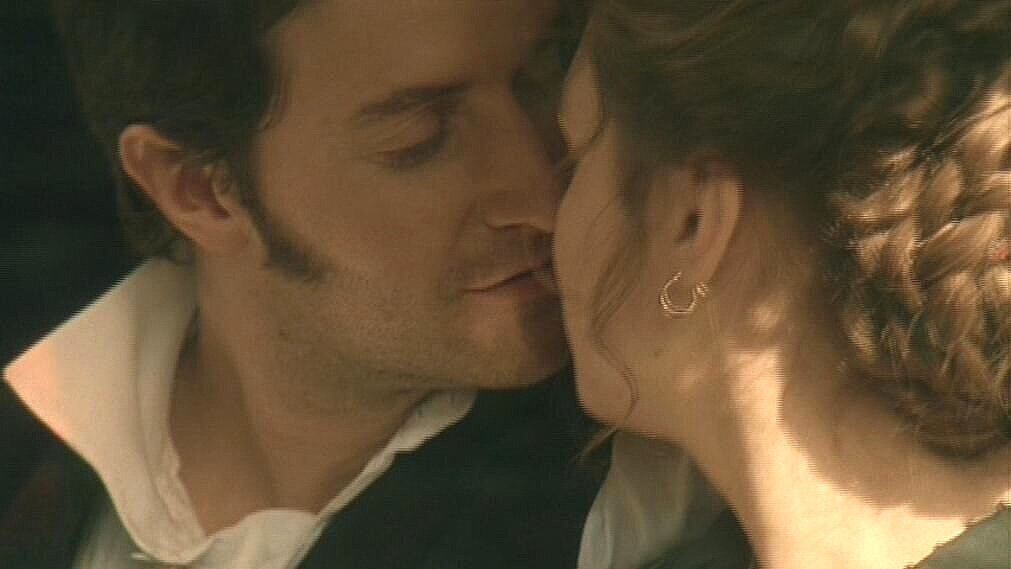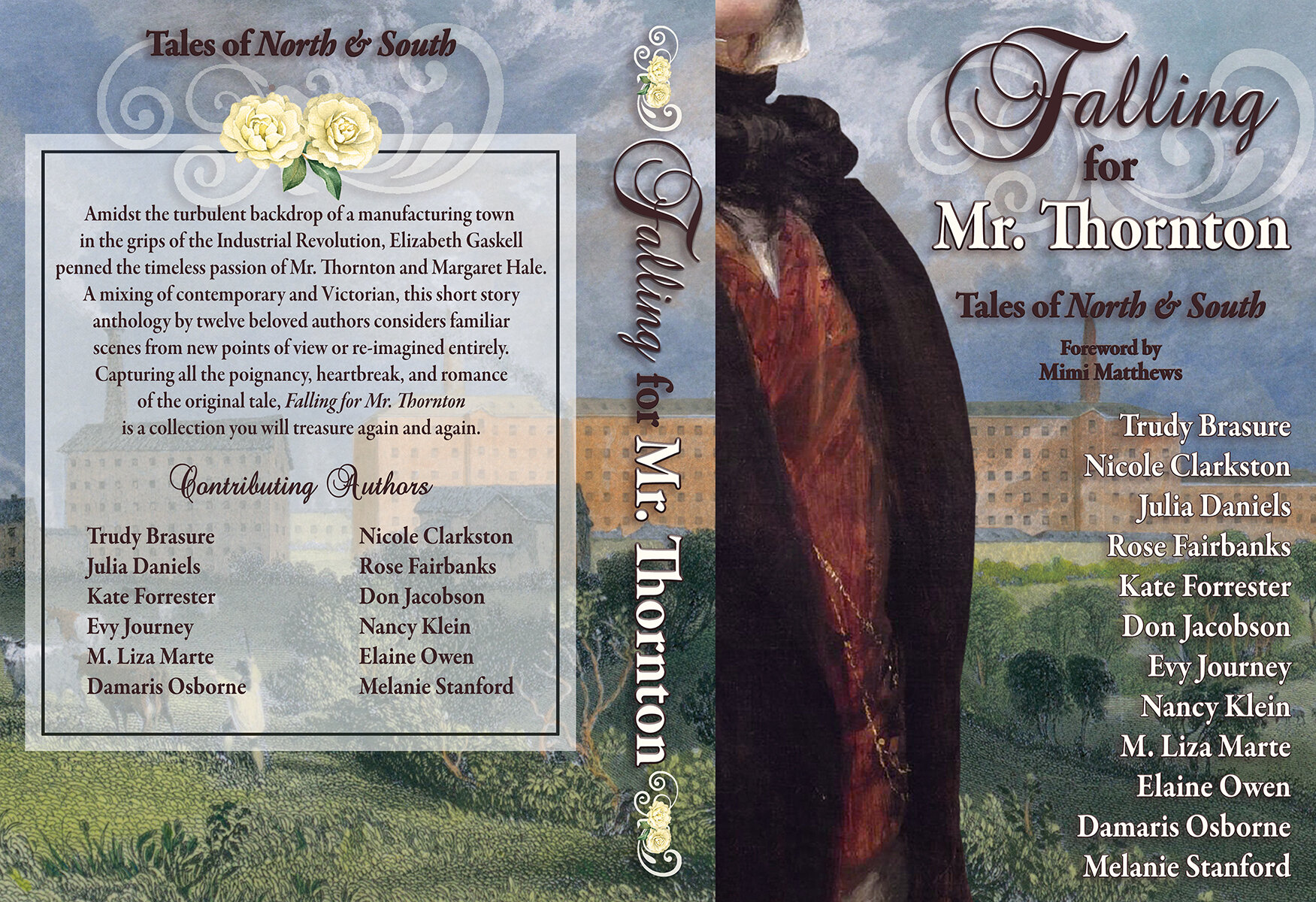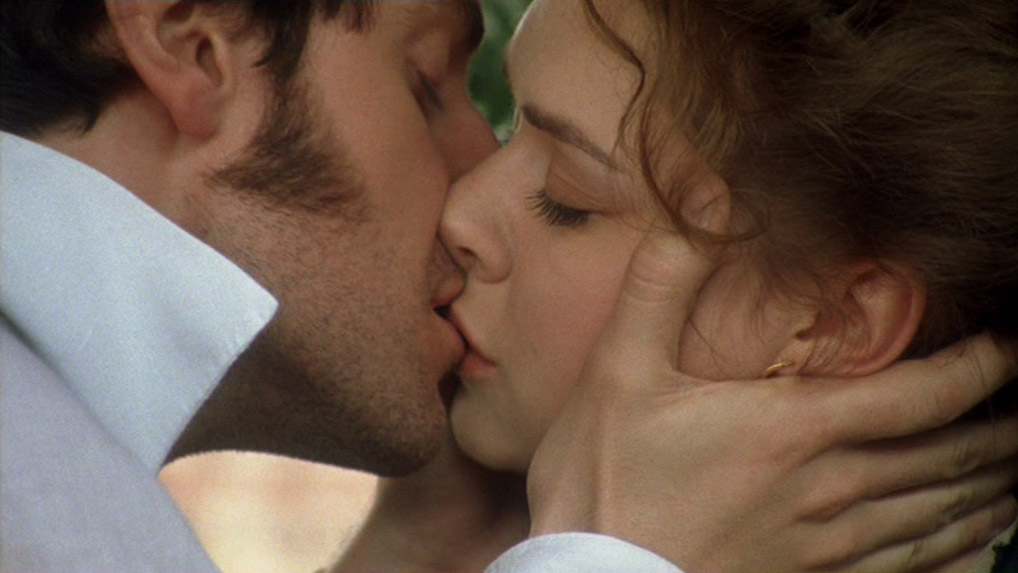Searching for a gleam of light
There’s a tremendous amount of gloom and tragedy in North and South. Margaret Hale and John Thornton suffer great loss and struggle mightily to keep going, but they both find the strength to get up every day and continue on.
Gaskell’s story could be seen as a glimpse into the hardest three years of Margaret’s life. Seven deaths occur in North and South and all of them impact Margaret Hale. The four most personally felt—the deaths of Bessy, her mother, father and Mr. Bell—all take place within two years. Imagine suffering such a string of catastrophic losses at the age of nineteen or twenty!
Margaret’s first calamity is being forced to leave a beloved home. Moving to Milton is a harsh change for her, although there are definitely some hidden silver linings! But on the whole, things continue to worsen for her as her mother becomes more ill and Margaret finds herself constantly arguing with her father’s favorite student. Margaret’s main motivation through this stage of the story is to support her parents as best she can.
But before long, conditions and events in this new town begin to spiral completely out of control:
Her mother’s health takes a turn for the worse.
She gets injured trying to single-handedly stop a riot.
Her father’s best friend suddenly professes his love to her.
She forcefully rejects the town’s most eligible bachelor.
her new (and only) Milton friend dies.
Margaret still keeps going rather bravely for weeks until everything crashes to a halt with her mother’s death. But even then, Margaret does not have the luxury to break down and grieve. The very next evening she takes Fred to the station and everything goes terribly wrong. (Poor Margaret is caught up in dangerous violence again!) Mr. Thornton sees her with Frederick and she is forced to lie to the police.
This is a dark time for Margaret. Feeling she’s lost the respect of Mr. Thornton, and condemning herself for lying, she has lost some respect for herself in the bargain. She moves through life with no cheerfulness, trying to help others. Gaskell describes this period of gloom poignantly:
The dreary peacefulness of the present time had been preceded by so long a period of anxiety and care — even intermixed with some storms — that her mind had lost its elasticity. She tried to find herself occupation in teaching the two younger Boucher children, and worked hard at goodness…for her heart seemed dead to the end of all her efforts…her life seemed still bleak and dreary. The only thing she did well, was what she did out of unconscious piety, the silent comforting and consoling of her father.
The last goodbye
Little did she know that this barren, calm period was only the receding wave, gathering in silence to unleash the final crashing wave of loss.
At the news of her father’s unexpected death, Margaret finally breaks down. She cannot rise from her grief and despair for several days. These are her darkest days, when she no longer has a family to live for, and is convinced she has lost the chance to have one of her own.
Margaret’s existence in London is almost mechanical. She has no heart for the life Edith leads and feels her soul revive only when alone with Edith’s toddler son or hearing someone talk of Milton. She spends several months in this mode of barely living before she searches deep inside to find a guiding principle to follow.
Mr. Bell’s sudden death causes Margaret to pray “that she might have strength to speak and act the truth forevermore.” To discover what that truth means to her, Margaret spends day after day sitting at the beach, contemplating her life until “she turned with all her heart and strength to the life that lay immediately before her, and resolved to strive and make the best of that.”
She returns to London with new vigor, taking “her life into her own hands” and acknowledging “her right to follow her own ideas of duty.” For Margaret, this means taking time to help the poor in London. Margaret finds life-giving meaning in helping others. It sustains her by giving her purpose, activity, and a sense of doing good. And although she still feels the pain of losing what might have been with Thornton, she has found a way to bring light into her life and move forward.
Of course Margaret is not the only one pushing valiantly on through a seeming tunnel of darkness. When we meet John Thornton, he has already passed through the signal tragedy of his life: his father’s suicide. The manner in which he and his mother fought through this deep trial to become outstanding members of society shows the great strength of character this man possesses.
But with Margaret’s arrival to Milton, the scene is set for Mr. Thornton to endure another great test of his strength. Her rejection of him shrouds his future in darkness, but he still has the mill to occupy his mind and the “stinging pleasure” of seeing her occasionally. It’s when she leaves Milton, that he is cast into a deep despair, as the famous scene in the BBC adaptation encapsulates so perfectly.
So, at the same time that Margaret is in London living a stoic half-life, going through the motions of life with barely any hope or joy—John Thornton is living a similar emptiness as he continues on without hope of having the life he truly wants.
Ah, but it gets worse. With the financial collapse of the mill, John is deprived of the purposeful work that keeps him going. Facing the loss of his lifework as well as the loss of Margaret as a life-partner, John stands on the brink of—for a second time in his existence—a deep chasm of darkness.
It is this battle-weary John Thornton that appears in my short story “Once Again.” I explore his inner struggle as he goes to London to sign the papers that gives up his connection to the mill.
My admiration for his strength deepened as I realized how much pain it must have caused him to see Margaret again, thinking she was destined to become another man’s wife. He could have declined the offer to dine at Aunt Shaw’s, but he must have been compelled to look upon the object of his deep passion once again. And so he goes to dinner….
I hope you’ll want to read how I portray his experience in London as he tries to move forward in spite of the gloom.
And what is it that propels him forward? It’s the same spirit that Margaret clings to: the desire to do right; the desire to be helpful to others. He won’t take work that only concentrates on the profit-motive. He wants to find work that will lift other men up in significant ways.
When his mother is lost in despair at the mill’s failure, she asks him what he will do—and he replies with this incredible, but time-tested battle cry in his darkest hour:
Be always the same John Thornton in whatever circumstances; endeavoring to do right, and making great blunders; and then trying to be brave in setting to afresh. But it is hard, mother. I have so worked and planned. I have discovered new powers in my situation too late — and now it is all over. I am too old to begin again with the same heart. It is hard, mother.
It’s because of the depth of darkness that both John and Margaret endure that it’s so heartening to see them find each other. We can feel how strongly united their spirits are. We know that the light of their love is going to be shining brightly for them through their future trials together.
Despite personal and global unrest, strife and tragedy—I hope people can find the courage and strength to continue their struggle for bringing out good in the world. We need each and every one who has a heart to help others to keep going.
We’re going to make it out into the light.










































